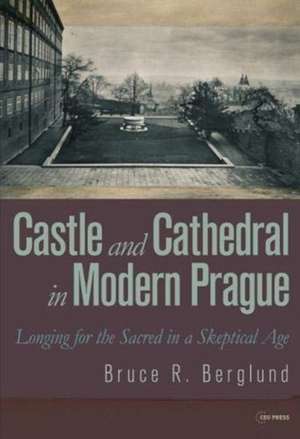CASTLE AND CATHEDRAL IN MODERN PRAGUE
Autor Bruce R. Berglunden Paperback – 29 iun 2018
Preț: 504.55 lei
Preț vechi: 622.90 lei
-19% Nou
Puncte Express: 757
Preț estimativ în valută:
96.56€ • 99.75$ • 80.36£
96.56€ • 99.75$ • 80.36£
Carte tipărită la comandă
Livrare economică 26 martie-09 aprilie
Preluare comenzi: 021 569.72.76
Specificații
ISBN-13: 9789637326431
ISBN-10: 963732643X
Pagini: 388
Dimensiuni: 228 x 156 x 26 mm
Greutate: 0.52 kg
Editura: CEU EDUCATIONAL SERVICE NON-PROFIT LLC
ISBN-10: 963732643X
Pagini: 388
Dimensiuni: 228 x 156 x 26 mm
Greutate: 0.52 kg
Editura: CEU EDUCATIONAL SERVICE NON-PROFIT LLC
Notă biografică
Bruce Berglund is Professor of History and Director of the Honors Program at Calvin College.
Descriere
Six million people visit Prague Castle each year. Here is the story of how this ancient citadel was transformed after World War I from a neglected, run-down relic into the seat of power for independent Czechoslovakia-and the symbolic center of democratic postwar Europe.
